Young Latino immigrants join forces to demand more mental health resources
Studies suggest mental health struggles are increasing in Latino communities. These young immigrants want to help make resources more accessible and build better datasets.
On the morning of Jan. 27 at the Eden Youth Center in Hayward, Calif. a group of six soft-spoken young Latinos got up in front of their parents, community organizers, and researchers at the University of California, Davis.
One at a time, the young people, who ranged in age from 14 to 22, asked the UC Davis researchers specific questions about a mental health services website called Together for Wellness, and its Spanish-language version, Juntos Por Nuestro Bienestar. The website, which offers a range of mental health resources, is a project that started during the COVID-19 pandemic and is partially funded by the state of California and curated by institutions across the state, including UC Davis.
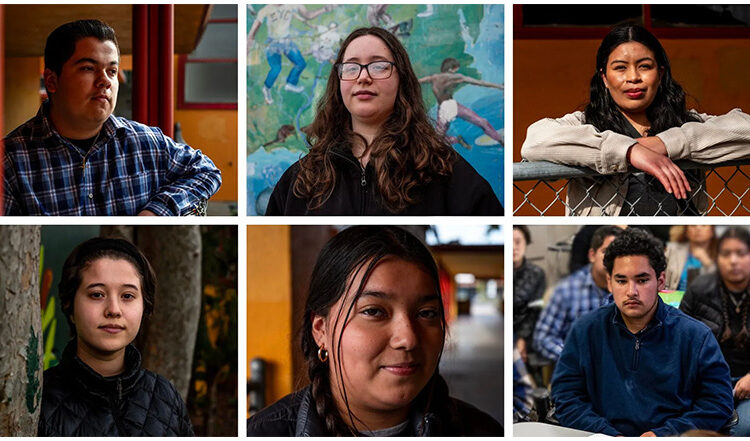
Up until now, Latino youth did not have a say about the resources offered on the website. But this Saturday in Hayward, the young Latinos, half of whom are immigrants, gathered at the Eden Youth Center are taking on the task of connecting their communities to mental health resources, and helping researchers build more robust data about Latino mental health.
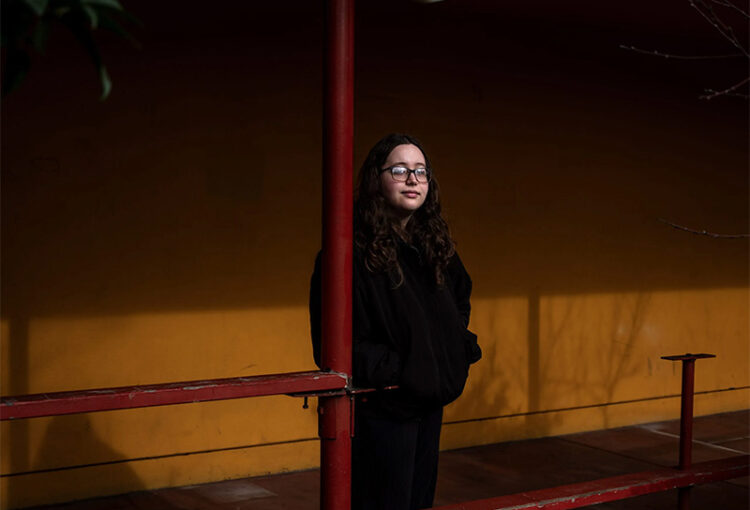
Maria Miramontes, a 21-year old immigrant from Mexico who now lives in Union City, pointed out to the UC Davis researchers that there were more than 60 resources offered on the Together for Wellness website in English, but in Spanish there were only 32.
What plan do you have to include more resources [in Spanish]?
“What do you have to say about that?” she asked the researchers in Spanish, before adding that for members of the LGBTQ community, there were only two resources in Spanish, versus 26 in English. “What plan do you have to include more resources [in Spanish]?” Miramontes asked.
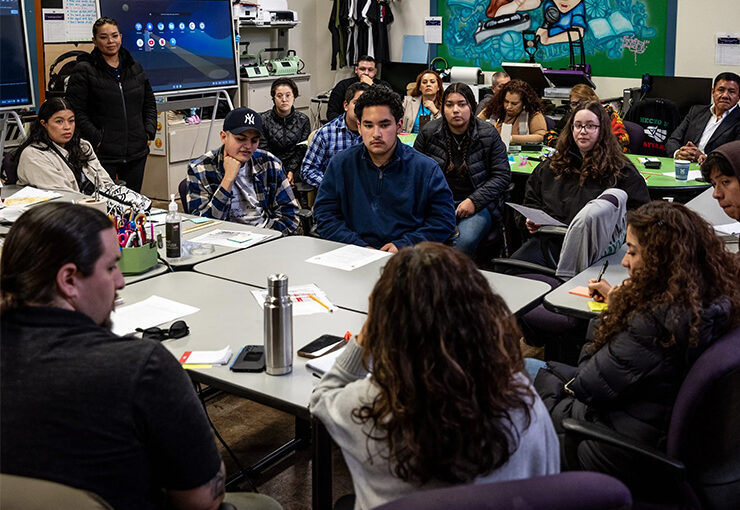
Studies in recent months have found a rise in mental health struggles for Latinos and barriers to accessing mental health care. Even talking about mental health can be a struggle in Latino communities where stigma can prevent people from asking for help. According to a KFF analysis of Centers for Disease Control and Prevention (CDC) preliminary data, suicides among Latinos nationally have increased from 2011 to 2021 by 39 percent.
In November of 2023, a California state auditor found that children on Medi-Cal—the state’s Medicaid program for low income people, of which Latinos make up the largest proportion—often face excessive wait times to receive mental health care.
Language barriers add another layer of difficulty in accessing mental health care. A 2023 “secret shopper” study in California found that the English speakers were more likely to speak with a scheduler and secure an appointment, and of the Spanish-speaking callers, 22% were hung up on or were told no one on staff spoke Spanish.
There’s not enough representation in the data to say, ‘how is [mental health] actually impacting [Latino communities].
Though the recent studies shed some light on the mental health struggles Latinos face in the U.S., there is still much that isn’t known, says Miriam Nuño, professor of biostatistics at UC Davis and one of the researchers who attended Saturday’s event. “We know that [mental health issues] are impacting our communities,” she says, but adds “there’s not enough representation in the data to say, ‘how is it actually impacting?’”
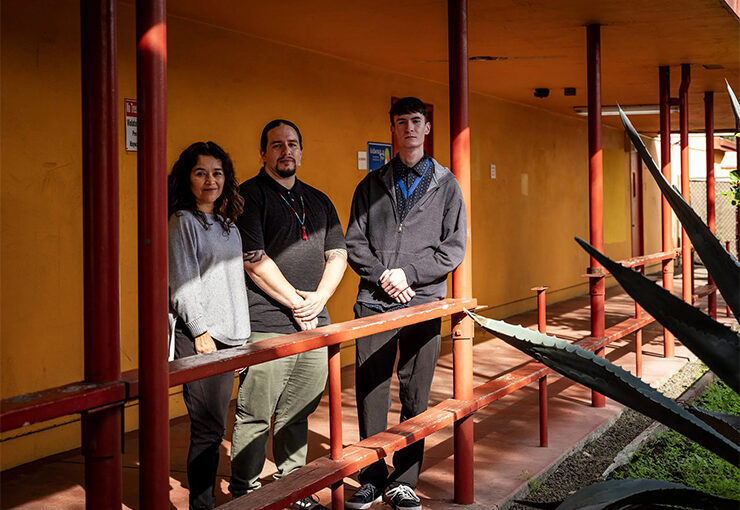
In other words, data shows that Latinos are struggling with their mental health, but we don’t know why. The UC Davis researchers hope that a continued partnership with the Latino youth who attended Saturday’s program could shed some light on the issues.
“We’re going to generate data that says, ‘hey, you know, this is the actual impact,” Nuño says. “Not just guess that [struggles with mental health are] high.”
Inside the Eden Youth Center, Miramontes waited for Nuño’s response to her question about the number of resources in Spanish available on the Juntos Por Nuestro Bienestar website. She also asked who is making the decisions behind what goes on the website.
“Cultural [knowledge] is very important,” Nuño says in Spanish. Most of the people deciding what goes on that list of resources are academics, she says. “That is why it is so important that you are at that table. To ask these questions. To say, you know what, ‘you aren’t understanding context.’”
“You all are from a different generation from ours. In my generation, we didn’t talk about depression,” Nuño tells Miramontes. “All of those changes, culturally and generationally—that is why we are saying that you all can help us.”
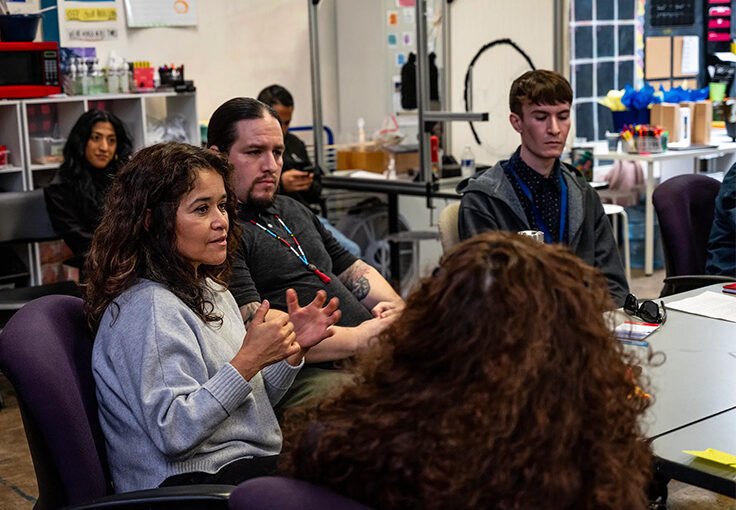
A seat at the table
The six young people who attended the Jan. 27 meeting were brought together by local promotoras—or community health educators—with Visión y Compromiso, a state-wide nonprofit that trains promotoras and advocates for Latino immigrant health.
Prior to their involvement with Vision y Compromiso, the six youth didn’t know each other. They were from different backgrounds, lived in different cities, and some are immigrants themselves. Their common ground, says Brianna Diaz-Suarez, 14, was their interest in advocating for mental health resources in their community. They named themselves “Gamedeloc,” an anagram made out of letters they chose at random.
“We all cared for the mental health of not just immigrants, but also teenagers,” Diaz-Suarez says.
For most of the six youth, Jan. 27 was their first time doing advocacy work. After meeting with the UC Davis researchers, all six said they plan to continue being advocates for Latino mental health, and will continue to participate in surveys and meetings with the researchers to help them complete their data gathering.
“When [Latinos] attempt to find therapy and psychiatric services, it’s very difficult because of language barriers, cultural barriers, and also…the stigma,” says Natalie Miramontes, 22, who is also a member of the youth group and the older sister of Maria Miramontes. She adds that she has faith in the UC Davis researchers, but also hopes to follow through with them in the coming months to hold them accountable.
“As someone who is introverted, [advocacy] scared me a bit at the start. It was hard,” Natalie says. “But now, with practice, I know I want to continue advocating [for mental health].”

